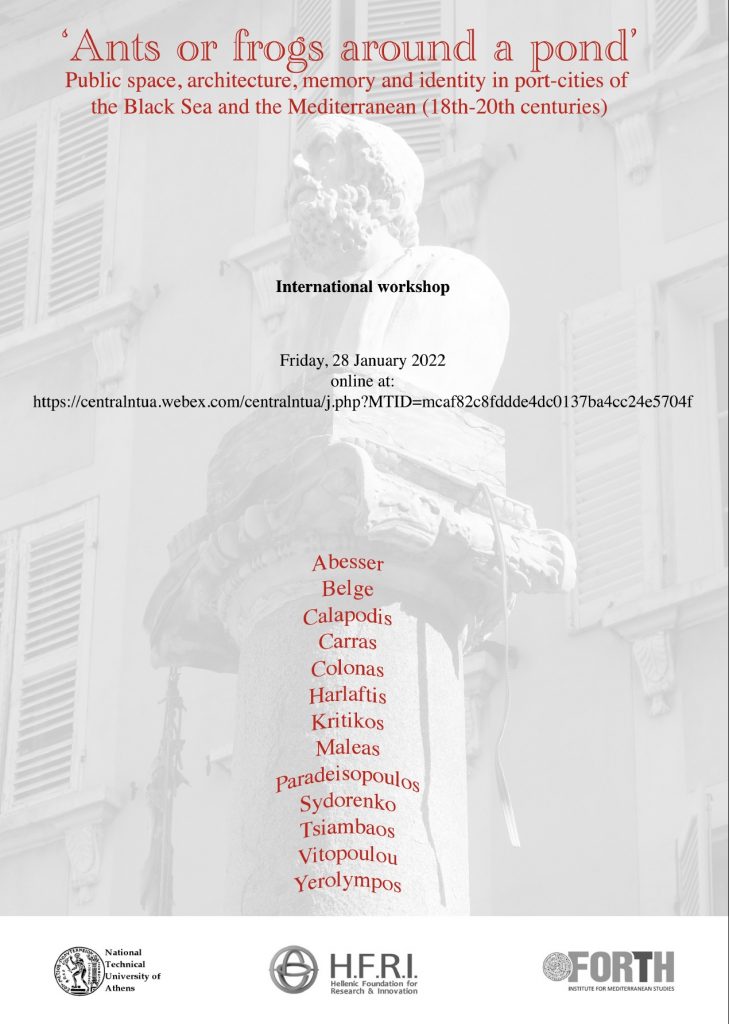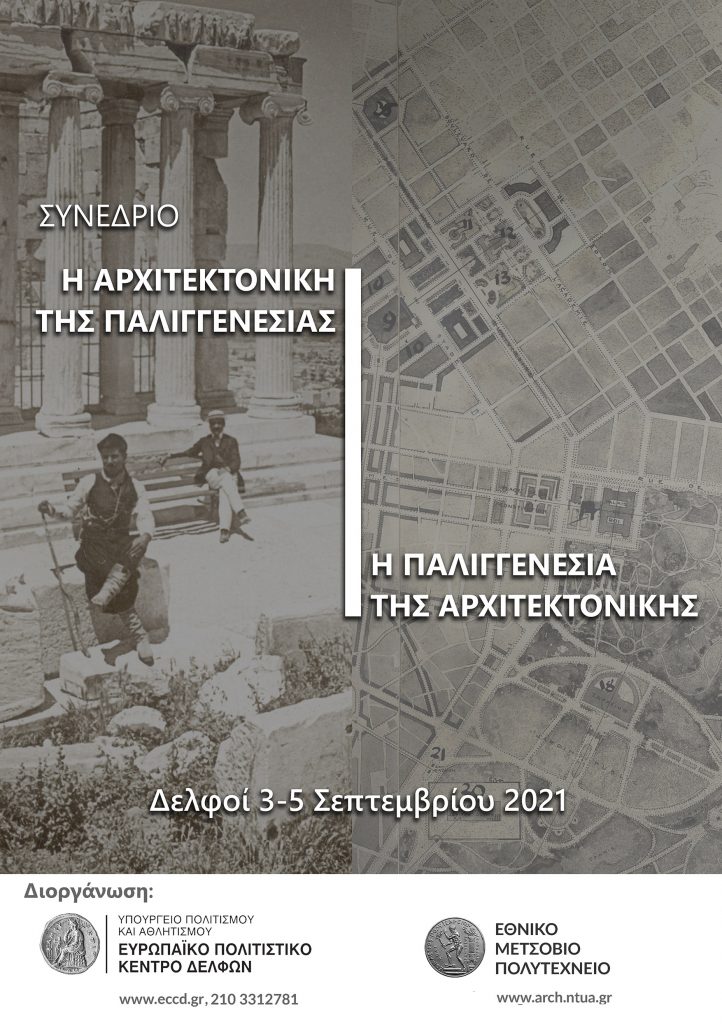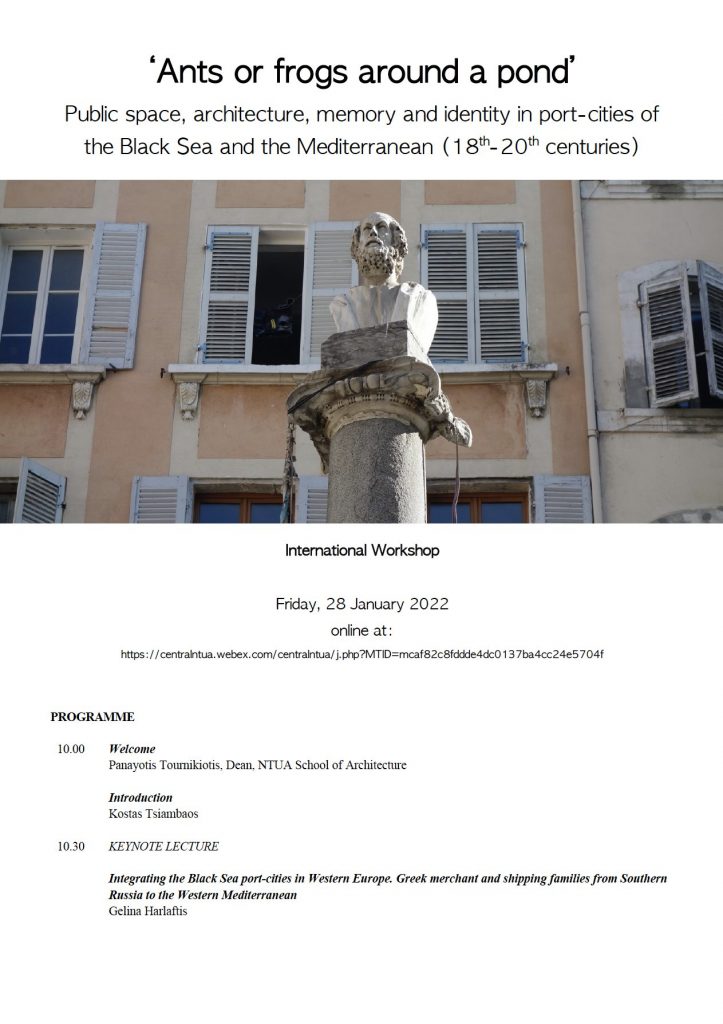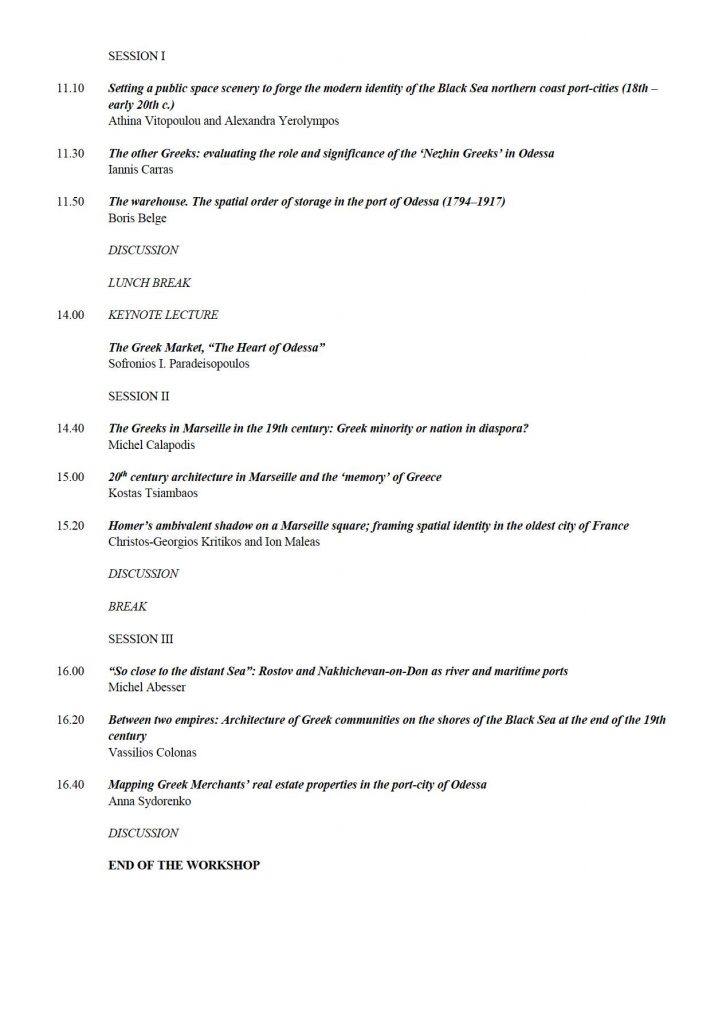International Workshop
‘Ants or frogs around a pond’
Public space, architecture, memory and identity in port-cities of the Black Sea and the Mediterranean (18th-20th centuries)

PROGRAMME
Friday, 28 January 2022
https://centralntua.webex.com/centralntua/j.php?MTID=mcaf82c8fddde4dc0137ba4cc24e5704f
————————————————————————————–
Presentation of a paper at the Architectural Conference THE ARCHITECTURE OF REBIRTH / THE REBIRTH OF ARCHITECTURE entitled:
'Greek' memory and identity in the architecture of Marseille after 1800

thematic unit 3: The architecture that undertook to express and yes build the Greek Renaissance
Kostas Tsiampaos and Christos-Georgios Kritikos
summary of the paper
The Greek rebirth is a hypothesis that was not limited to Greece as a national or geographical entity, but concerned a network of persons and cities that stretched from the Mediterranean and Central Europe to England and the Black Sea. Marseille was not only known as an ancient 'Greek' city founded by the Phocians in the 6th century BC. BC, but it was also one of the important nodes of this network: apart from the fact that from the end of the 18th century . it hosted the development of a dynamic Greek community, the port of Marseille was also the point from where most non-Greeks started in order to fight to help the Greek Revolution.
In our presentation we will present the ways in which the 'Greek' memory and identity has been inscribed in the built environment of Marseille from 1800 until today. The reference to the ancient past of the city was emphasized more strongly in phases, as for example during the impressive celebrations of 1899 for the 25th centenary since the foundation of the city by the Phocians, but it appears over time in the architectural design of the city. Various important architectural works and public spaces of the 19th century that highlighted or even referred to a Greek identity will be presented, either as an imprint of the then thriving Greek community, or as works of French urban planners and architects (such as Fernard Benoit, André-Pierre Hardy, Gaston Castel, etc.) that referred to a familiar 'memory' of Greece. Finally, we will look at the way this memory of Greece is present in the city of Marseille today, defining a lasting urban, cultural and aesthetic constant. Greek antiquity as the foundation of rebirth becomes recognizable in a city outside the geographical boundaries of Greece, but also within a modern era which – long after the narrow historical horizon of 1821 – constantly defines itself culturally with axes of stable standards and values.

